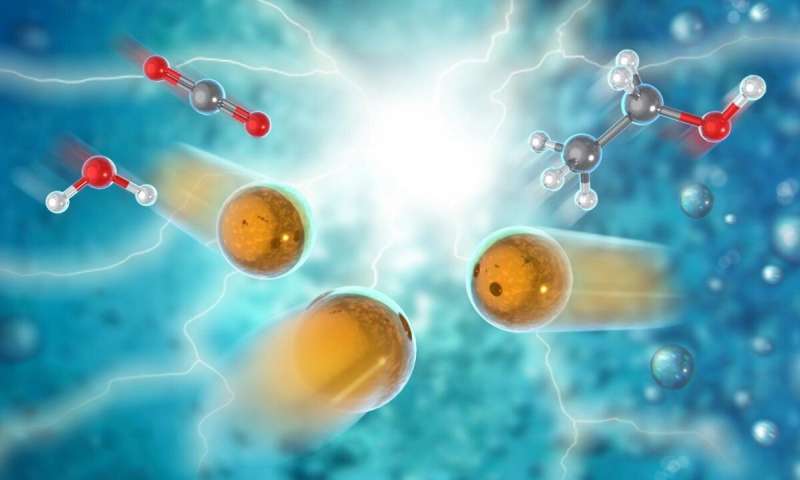HOME
Researchers discover new electrocatalyst for turning carbon dioxide into liquid fuel

Artistic rendering of electrocatalytic process for conversion of carbon dioxide and water into ethanol. Credit: Credit: Argonne National Laboratory
Catalysts speed up chemical reactions and form the backbone of many industrial processes. For example, they are essential in transforming heavy oil into gasoline or jet fuel. Today, catalysts are involved in over 80 percent of all manufactured products.
A research team, led by the U.S. Department of Energy's (DOE) Argonne National Laboratory in collaboration with Northern Illinois University, has discovered a new electrocatalyst that converts carbon dioxide (CO2) and water into ethanol with very high energy efficiency, high selectivity for the desired final product and low cost. Ethanol is a particularly desirable commodity because it is an ingredient in nearly all U.S. gasoline and is widely used as an intermediate product in the chemical, pharmaceutical and cosmetics industries.
"The process resulting from our catalyst would contribute to the circular carbon economy, which entails the reuse of carbon dioxide," said Di-Jia Liu, senior chemist in Argonne's Chemical Sciences and Engineering division and a UChicago CASE scientist in the Pritzker School of Molecular Engineering, University of Chicago. This process would do so by electrochemically converting the CO2 emitted from industrial processes, such as fossil fuel power plants or alcohol fermentation plants, into valuable commodities at reasonable cost.
News Source